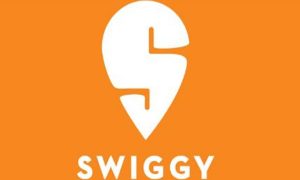Alcohol delivery is emerging as the next big thing in India’s e-commerce scene. BigBasket and Amazon recently acquired licences for delivering alcohol in West Bengal. Food aggregators Swiggy and Zomato are already offering alcohol delivery services in Jharkhand, Odisha and West Bengal.
This could be a lucrative business for e-commerce companies as several states continue to be under lockdown and consumers are wary of visiting liquor stores to buy alcohol, given the risks involved. Start-ups such as HipBar, Drinkify and Liqhub tried their hands at alcohol delivery in the past, but hit regulatory hurdles.
However, in view of the huge losses incurred by state governments during the lockdown – according to a report by the Reserve Bank of India, on average, Indian states collected Rs 15,000 crore per month as excise duty on alcohol in 2019-20 – regulations have been eased. This has attracted interest among several e-commerce companies eyeing the alcohol business in India, which Statista estimates is valued at Rs 2.4 lakh crore.
Prepping the tech
E-commerce firms venturing into this space are busy developing technology for age verification, which is critical from a regulatory compliance standpoint. Zomato has adopted a two-step verification process for ascertaining the age of the user, while Swiggy has developed an AI-based face recognition feature with OTP to automate age verification and user authentication.
“We have mandated a one-time instant age verification followed by a selfie of the customer. The integrated solution instantly digitises the customer’s identity card, checks if the customer’s selfie matches with the picture on the card, and then checks if the customer is really present in it or if it is a photo of a photo,” says a Swiggy spokesperson. The company has also introduced a crowd control feature for the safety of its delivery partners, which ensures there is no overcrowding at the retail stores during peak hours.
These companies are tying up with authorised retailers in specific cities for delivery. Zomato, for instance, has a total of 250 retailers on board so far, and has plans to partner with all the authorised government retailers in the cities where it is active.
Although these e-commerce players are in talks with other states to scale up their services, at the moment, their focus is on getting the processes right. “Alcohol delivery is complex, involving multiple stakeholders – governments, retailers, and brands – and strict operating guidelines. These are early days and it faces challenges typical to any new category, such as technology adoption by suppliers, stock availability, etc,” says Rakesh Ranjan, VP-Zomato.
Bottlenecks
Devangshu Dutta, chief executive, Third Eyesight, says following the diverse regulatory guidelines will not be easy for these companies. “Since every state has its own set of rules, adhering to them will be challenging for the companies entering this space, especially when they are eyeing pan-India operations.”
Zomato and Swiggy, on average, are charging Rs 60-100 per order for delivery, depending on the order size and distance covered. The Odisha government has fixed the delivery fee at Rs 100 for orders up to Rs 1,000, and beyond that for every Rs 500, charges go up by Rs 25, with a ceiling of Rs 300 on delivery charges.
Ankur Pahwa, partner and national leader-e-commerce and consumer internet, EY India, says a “reasonable” delivery fee is critical in the adoption of this service. “A customer buying 10 bottles of beer would not mind shelling out Rs 100 as delivery fee, but someone buying one or two products may not want to spend as much on delivery.”
He foresees that food aggregators would benefit from the impulse purchases, while grocery players would see planned orders coming their way, when customers are looking at stocking up for the month.
Rajat Wahi, partner, Deloitte India, says that these companies could expand into alcohol distribution going ahead, which, so far, has been tightly controlled by the states. “Currently, there are only 86,000 alcohol stores in the country, as compared to 10-12 million FMCG retailers. Distribution is the bigger play here,” he adds.



































